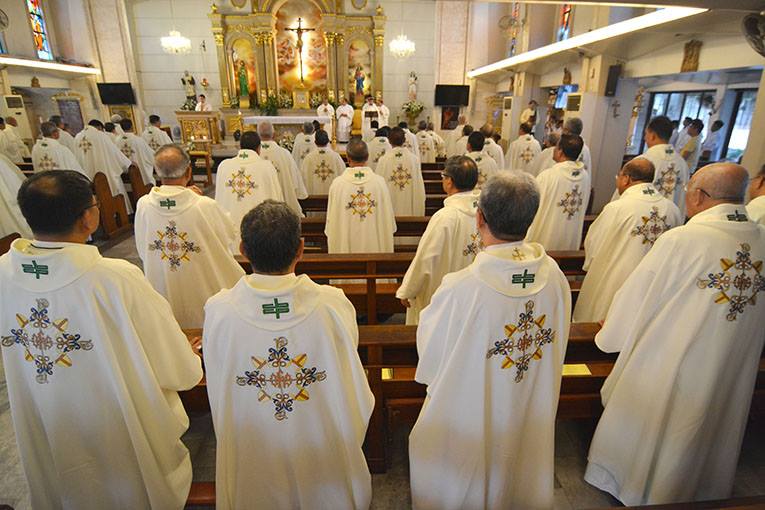Leaders from several religious groups in the Philippines today filed another petition at the Supreme Court (SC) against the widely opposed Anti-Terrorism Act of 2020.
This is the 18th petition to be lodged before the high court ever since President Rodrigo Duterte signed the measure into law on July 3.
Bishop Broderick Pabillo, a fierce critic of the president and the apostolic administrator of the Archdiocese of Manila, led the petition and is joined by some 20 religious leaders from the United Church of Christ in the Philippines, National Council of Churches in the Philippines, Episcopal Church in the Philippines, Rural Missionaries of the Philippines, and other religious groups.
The religious leaders asked the SC to prohibit the government from implementing Republic Act No. 11479, which took effect on July 18. Like other petitioners, the group said the law is unconstitutional due to its broad provisions, and emphasized that even clerics face the risk of being branded as terrorists.
“The Honorable Court must have heard of people active in social advocacies who are accused of being communists. Even bishops, priests, and the religious were included among those charged by the Philippine National Police with crimes of sedition and inciting to sedition, solely because of their social advocacies,” their petition read.
Read: PH labor groups file 9th petition vs Anti-Terror Act before Supreme Court
The church leaders also alleged that the controversial law does not distinguish between peaceful protesters and armed groups who are truly committing acts of terror against the government.
“[T]he policies and actions of the government do not make any delineation between legal, above ground organizations and armed, underground groups that are waging a protracted war against the government. They are lumped together as forming a wide network of ‘terrorists,’” the religious leaders said.
Section 25 of the anti-terror law says that Duterte’s government can form an Anti-Terror Council that is made up of cabinet members who can designate people and groups as terrorists by its own finding and without probable cause. The Council could also detain the suspected terrorists without a warrant for up to 24 days, as mentioned in Section 29 of the law.
“All of us must exert efforts to make our country truly free and democratic, where every individual is entitled to the full protection of the Constitution and the Bill of Rights can stand as stolid sentinel for all, the innocent as well as the guilty, including the basest of criminals,” they added.




